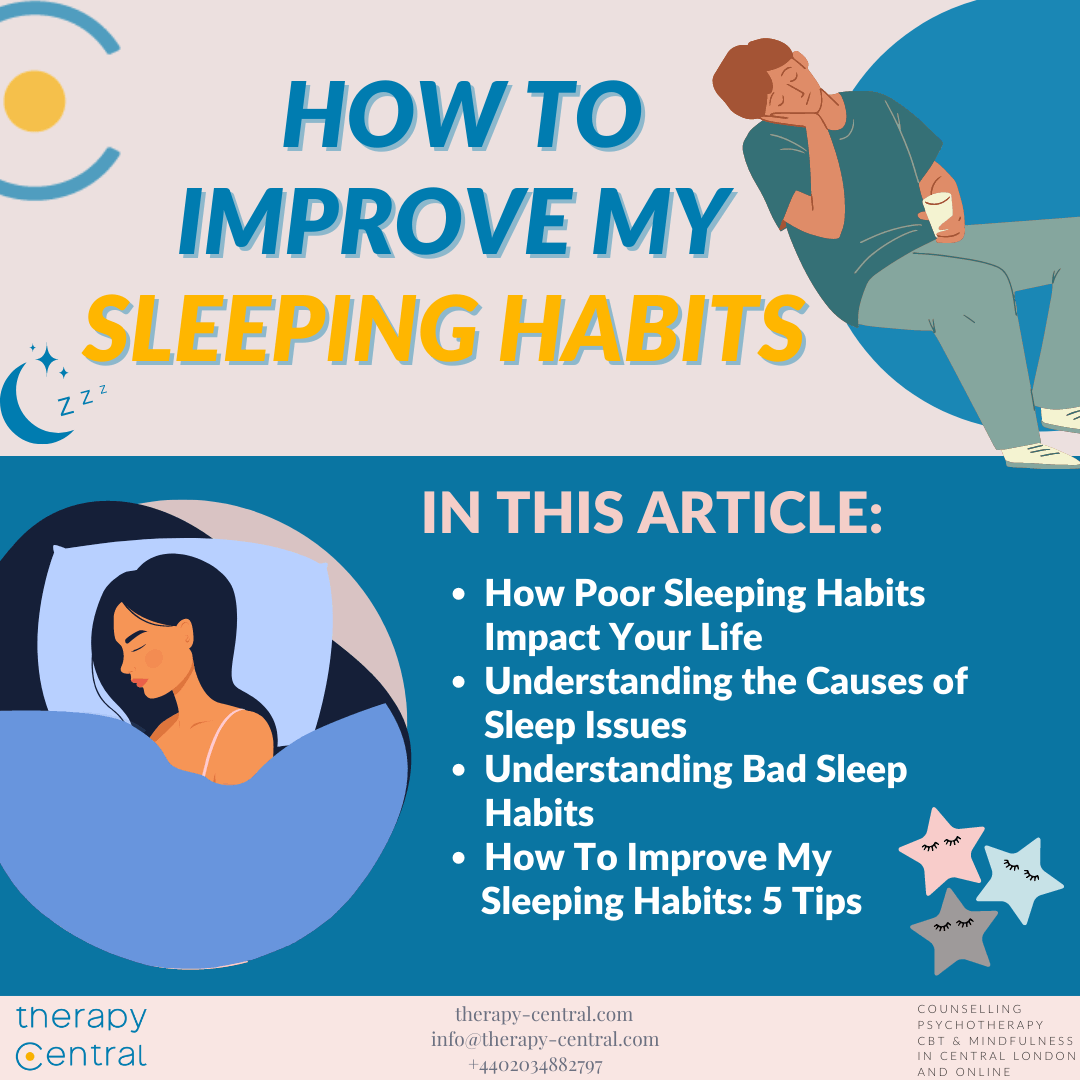10 Effective Sleep Improvement Lifestyle Changes
At NeuroTechInsider, we know how essential quality sleep is for overall well-being. Whether you’re struggling with insomnia, stress, or just poor sleep habits, making a few lifestyle changes can help you sleep better and wake up feeling refreshed. In this article, we explore 10 evidence-based sleep improvement lifestyle changes that can significantly enhance your sleep quality. From simple routines to environment tweaks, these changes will help you achieve better sleep and boost your productivity and health.
The Importance of Sleep Improvement
We all know the importance of sleep, but what exactly does it do for our health? Sleep is vital for cognitive function, emotional regulation, and physical health. Chronic sleep deprivation can lead to issues like fatigue, mood swings, and reduced immunity. Furthermore, it is linked to long-term health conditions such as heart disease and diabetes. By making small changes to your lifestyle, you can improve your sleep quality and overall health.
1. Maintain a Consistent Sleep Schedule
One of the most powerful ways to improve your sleep is by sticking to a regular sleep schedule. Going to bed and waking up at the same time every day helps regulate your body’s natural circadian rhythm, making it easier to fall asleep and wake up feeling refreshed. Here’s why consistency matters:
- Strengthens the circadian rhythm: Your body’s internal clock, or circadian rhythm, is influenced by your sleep-wake cycle. Maintaining a consistent schedule reinforces this cycle.
- Enhances sleep quality: A stable schedule helps your body anticipate when it’s time to rest, leading to more restful and uninterrupted sleep.
- Improves morning alertness: Waking up at the same time every day makes it easier to start the day with energy and focus.
It might be tempting to sleep in on weekends, but research from the Sleep Foundation shows that irregular sleep patterns can disrupt your body’s internal clock, leading to sleep problems. Try to avoid long naps during the day and aim to wake up at the same time every morning, even on weekends.
2. Create a Relaxing Bedtime Routine
Your pre-sleep routine sets the tone for a good night’s sleep. A relaxing bedtime routine helps signal to your body that it’s time to wind down. Consider incorporating the following activities:
- Reading: Reading a book (preferably something not too stimulating) can calm your mind before bed.
- Listening to soothing music: Soft, calming music can help lower your heart rate and prepare you for sleep.
- Taking a warm bath: A warm bath can help relax your muscles and promote sleepiness.
Avoid using electronics such as phones or tablets before bed. The blue light emitted by screens can interfere with the production of melatonin, the hormone that regulates sleep. According to the National Institutes of Health, limiting screen time an hour before bed is crucial for improving sleep quality.
Why Avoiding Screens is Crucial
The light from electronic devices can trick your brain into thinking it’s still daytime, making it harder to fall asleep. If you’re addicted to your phone or laptop before bed, try using a blue light filter or switching to reading a physical book instead.
3. Optimize Your Sleep Environment
Creating the perfect sleep environment is one of the simplest yet most effective ways to improve your sleep. Your bedroom should be a sanctuary for rest, free from distractions and disruptions. Here’s how to optimize your environment:
- Keep the room cool: Research suggests that a cooler room temperature, typically between 60-67°F (15-19°C), promotes better sleep.
- Eliminate noise: If noise is a problem, consider using earplugs or a white noise machine to block out disruptive sounds.
- Dim the lights: Blackout curtains can help eliminate outside light that may disturb your sleep cycle. Use low-light lamps in the evening to prepare your body for rest.
Reserve your bed for sleep and intimacy only. Avoid using your bed for work or watching TV, as these activities can condition your brain to associate the bed with wakefulness, rather than relaxation.
Tools for an Optimal Sleep Environment
Some practical tools you can use include blackout curtains, earplugs, and white noise machines. These tools can help eliminate distractions and create the perfect environment for deep, restorative sleep.

4. Be Mindful of Food and Drink
What you eat and drink can significantly impact your sleep quality. To enhance your sleep, it’s important to avoid certain foods and beverages close to bedtime:
- Limit caffeine: Caffeine is a stimulant that can stay in your system for hours, making it difficult to fall asleep. Avoid caffeinated drinks after 2:00 PM.
- Avoid large meals: Eating heavy or spicy meals close to bedtime can cause discomfort and indigestion, disrupting your sleep.
- Reduce alcohol consumption: While alcohol may help you fall asleep initially, it can lead to fragmented sleep and poorer sleep quality throughout the night.
Instead, consider drinking a warm cup of herbal tea or a glass of warm milk before bed. These can promote relaxation and aid in falling asleep.
Best Foods for Sleep
Foods that are high in magnesium and tryptophan, such as almonds, bananas, and turkey, can help promote better sleep. Adding these to your evening routine may help you fall asleep faster and sleep more soundly.
5. Get Regular Physical Activity
Exercise is one of the most effective ways to improve sleep quality. Regular physical activity helps reduce stress, anxiety, and improves overall sleep. However, timing is crucial. It’s best to avoid intense exercise in the hours leading up to bedtime. Vigorous physical activity can raise your heart rate and body temperature, making it more difficult to fall asleep.
Types of Exercise
Low-impact exercises like yoga, walking, or stretching in the evening can actually help prepare your body for rest. These activities promote relaxation and are ideal for winding down before bed.
For more information on improving sleep quality with lifestyle changes, check out this detailed Sleep Hygiene Guide.
Conclusion
Improving your sleep is about making small but consistent changes to your lifestyle. By following these 5 sleep improvement tips, including maintaining a consistent sleep schedule, optimizing your sleep environment, and making mindful choices about food and exercise, you can experience better sleep quality and overall health. For more tips and the latest tech reviews on sleep improvement devices like NeuroVIZR, check out NeuroTechInsider to discover non-invasive solutions that enhance sleep and brain wellness.
6. Limit Daytime Naps
While naps can be rejuvenating, they can also interfere with your nighttime sleep if taken too late in the day or for too long. If you feel the need to nap, consider limiting it to 20-30 minutes and try to take your nap early in the afternoon. Here’s why:
- Short naps boost energy: A short nap of 20 minutes can help reduce sleepiness without making it harder to fall asleep later at night.
- Long naps disrupt sleep cycles: Napping for longer periods or late in the day can interfere with your ability to fall asleep at night, leading to disrupted sleep cycles.
According to Sleep Foundation, limiting naps to earlier in the day can help maintain the rhythm of your circadian clock and prevent them from interfering with nighttime sleep.
7. Manage Stress and Worries
Stress is a major culprit behind sleepless nights. Whether it’s from work, personal life, or simply the pressures of modern living, stress keeps your mind racing when it should be winding down. Implementing relaxation techniques like deep breathing, mindfulness, or journaling can help clear your mind and prepare you for sleep:
- Mindfulness meditation: Studies show that mindfulness practices can lower heart rate and promote relaxation, making it easier to fall asleep.
- Breathing exercises: Deep breathing exercises, such as the 4-7-8 technique, can calm the nervous system and promote relaxation.
- Journaling: Writing down your thoughts or a to-do list for the next day can relieve mental stress and help prevent overthinking at bedtime.
Managing your stress before bed is essential for quality sleep. If you need more guidance on how to incorporate mindfulness into your routine, check out this Psychology Today article on mindfulness exercises for sleep.
8. Get Natural Light Exposure
Exposure to natural light during the day is one of the most powerful ways to improve your sleep. Your body’s internal clock, or circadian rhythm, is heavily influenced by light. Here’s how you can use light exposure to your advantage:
- Morning sunlight: Getting sunlight in the morning helps regulate your circadian rhythm and promotes wakefulness during the day.
- Outdoor time: Spending time outside, even if it’s just for a walk, can boost mood and help you feel more energized.
- Avoid artificial light at night: As with the importance of avoiding screens, minimizing exposure to artificial lighting after sunset can help signal your body that it’s time to wind down.
For more details on the effects of light on your sleep cycle, check out this article on PubMed Central, which explains the science behind circadian rhythms and light exposure.
9. Avoid Stimulants and Disruptors
Late-night indulgences like caffeine, alcohol, and even spicy foods can cause disruptions in your sleep. While caffeine is an obvious stimulant that keeps you awake, other substances like alcohol and heavy meals can also impair sleep quality:
- Caffeine: Avoid consuming caffeine after 2 PM, as its effects can last up to 8 hours.
- Alcohol: While alcohol may make you feel drowsy initially, it reduces sleep quality by disrupting your sleep cycle and preventing you from reaching the deeper, restorative stages of sleep.
- Spicy or fatty foods: These can cause indigestion and discomfort, making it harder to fall asleep or stay asleep.
Instead of caffeine or alcohol, opt for a soothing herbal tea, such as chamomile or valerian root, which are known for their sleep-inducing properties. For more on avoiding food disruptors before bed, visit Healthline’s list of foods that promote better sleep.
10. Track Your Sleep Habits
Keeping track of your sleep habits is an excellent way to identify patterns and obstacles to better sleep. By maintaining a sleep diary or using a sleep-tracking device, you can pinpoint factors that might be interfering with your rest. Tracking your sleep allows you to:
- Monitor sleep patterns: Keep a record of your sleep times, how long you sleep, and how often you wake up during the night.
- Identify disruptors: If you’re not sleeping well, your diary or tracker may reveal patterns related to food, exercise, or stress.
- Set realistic goals: By seeing your progress over time, you can make small adjustments that lead to better sleep.
If you’re looking for the best sleep tracking devices to complement your lifestyle changes, we have a detailed review on some of the top products like the NeuroVIZR wearable for sleep improvement. Check out our NeuroVIZR Review for in-depth insights on how this device can help you monitor and improve your sleep.
Conclusion
Improving your sleep doesn’t require drastic changes; small, consistent lifestyle adjustments can go a long way in enhancing your sleep quality. Whether it’s maintaining a regular sleep schedule, optimizing your sleep environment, or managing your stress, each change builds toward healthier sleep habits and better overall health. Don’t forget to track your progress and be patient—quality sleep is a journey, not a quick fix.
For more tips, reviews, and expert advice on the latest in non-invasive brain stimulation devices, visit NeuroTechInsider—your go-to hub for understanding the intersection of technology and sleep wellness.
FAQs
- How long should I nap during the day?
Ideally, naps should be short—about 20-30 minutes—to avoid disrupting your nighttime sleep. - What is the best time to exercise for better sleep?
Morning or early afternoon is best for exercise. Avoid vigorous activity in the two hours leading up to bedtime. - Can my diet affect my sleep quality?
Yes! Avoid large meals, caffeine, and alcohol before bed. Opt for sleep-friendly foods like bananas, almonds, and herbal teas.
